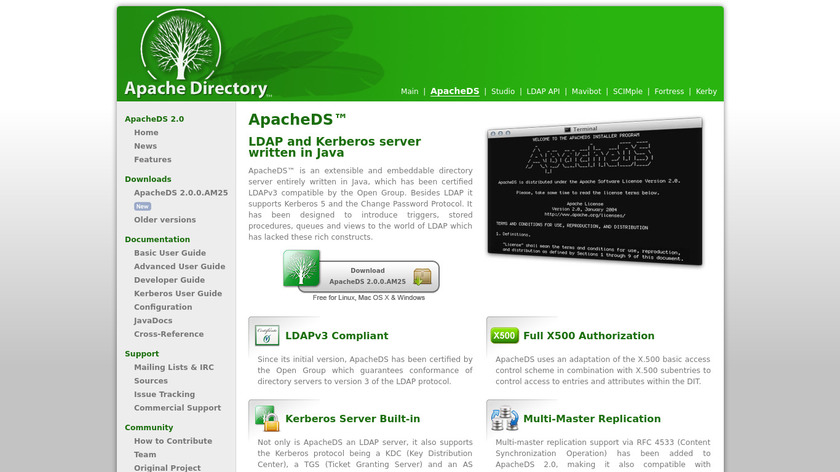

Re: Node corrupted after a child node moved Emmanuel Lécharny.Node corrupted after a child node moved Benoît Dissert.AttributeDescription with semicolon Re: AttributeDescription with semicolon Emmanuel Lécharny.Apache Directory Studio 2.0-0-M16 released Stefan Seelmann.Call for Presentations for ApacheCon 2021 now open Rich Bowen.the standard Eclipse XML editor Stefan Seelmann Re: Adding additional Value Editors - e.g.the standard Eclipse XML editor Franz Wolfhagen



#Is apache directory studio safe windows
Re: Add version number to Windows Installer Stefan Seelmann.Add version number to Windows Installer Nelson Bartley.ApacheCon is just 3 weeks away! Rich Bowen.Re: can't connect to my ldap server Donald Lohr.Re: can't connect to my ldap server Meissa Sakho.Re: can't connect to my ldap server Emmanuel Lécharny.can't connect to my ldap server Meissa Sakho.Re: Ldap DS docker image Emmanuel Lécharny.Re: Corrupted partitions due to concurrent bind failures ? Emmanuel Lécharny.Corrupted partitions due to concurrent bind failures ? Carl Wicklow.You can also use policies to prevent MFA from being required when accessing LDAP apps. Any connections coming from the LDAP apps are required to use MFA. To implement MFA for your LDAP apps, you can set up network zones for the LDAP apps that connect to Okta and then you apply MFA policies to these zones. LDAP interface authentication policies go through the Okta sign on policy. The LDAP interface is managed in the cloud. The Okta LDAP Agent is usually deployed inside your firewall. The LDAP interface lets you migrate certain applications from LDAP or AD servers to Okta. The Okta LDAP Agent synchronizes user profiles to or from an existing LDAP directory. The LDAP Interface lets you connect LDAP applications to Okta Universal Directory without installing and maintaining Okta LDAP Agents: To enhance security, you can also add Multi-Factor Authentication (MFA) to your LDAP apps with Okta Verify Push and One-Time-Password (OTP). The LDAP Interface is a cloud proxy that consumes LDAP commands and translates them to Okta API calls, providing a straightforward path to authenticate legacy LDAP apps in the cloud. The LDAP Interface lets you use Okta to centralize and manage your LDAP policies, users, and applications that support the LDAP authentication protocol. The LDAP Interface uses Universal Directory for authentication instead of an LDAP server or Active Directory (AD).


 0 kommentar(er)
0 kommentar(er)
